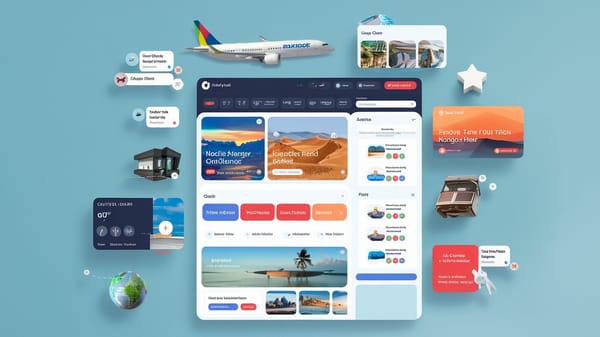What is an Account Executive?

An account executive (AE) is a pivotal figure in the business landscape, primarily responsible for managing and nurturing client relationships. Found predominantly in industries such as advertising, public relations, financial services, and technology, account executives serve as the main point of contact between a company and its clients. Their role is integral from the inception of a business relationship, as they are involved in pitching deals, negotiating contracts, and ensuring the fulfillment of contract terms to maintain client satisfaction.
Account executives are often described as "relationship architects" due to their role in building and sustaining long-term customer relationships. They work closely with sales development representatives (SDRs) to transition qualified leads into loyal clients. This involves engaging with prospects, presenting solutions, negotiating terms, and ultimately closing deals. Their responsibilities extend beyond initial sales, as they are tasked with conducting regular account reviews to assess client satisfaction and identify opportunities for upselling or cross-selling.
In addition to client management, account executives are expected to stay informed about industry trends and market developments. This involves conducting market research to analyze data and customer feedback, which helps in identifying growth opportunities and informing internal teams about potential product improvements or marketing strategies. Their role requires a proactive and strategic approach, often identifying client needs before they become apparent.
The day-to-day tasks of an account executive include responding promptly to client communications, conducting check-in meetings, and engaging in sales activities such as cold calling and networking. They are also responsible for coordinating with internal teams to resolve any product-related issues that clients may encounter.
For those aspiring to advance in their careers, senior-level account executives take on additional responsibilities such as shaping sales strategies, leading sales teams, and cultivating key partnerships. These roles require significant industry experience and leadership skills to align sales efforts with organizational objectives.
You can also visit Oncely.com to find more Top Trending AI Tools. Oncely partners with software developers and companies to present exclusive deals on their products. One unique aspect of Oncely is its “Lifetime Access” feature, where customers can purchase a product once and gain ongoing access to it without any recurring fees. Oncely also provides a 60-day money-back guarantee on most purchases, allowing customers to try out the products and services risk-free.
Oncely are hunting for the most fantastic AI & Software lifetime deals like the ones below or their alternatives:

Table of Contents
- Understanding the Role of an Account Executive
- Core Responsibilities
- Daily Activities
- Skills and Qualifications
- Career Path and Advancement
- Industry Trends and Future Outlook
- Key Responsibilities of an Account Executive
- Client Relationship Management
- Sales and Revenue Generation
- Strategic Planning and Execution
- Cross-Functional Collaboration
- Reporting and Performance Analysis
- Essential Skills Required for an Account Executive
- Communication and Interpersonal Skills
- Sales and Negotiation Skills
- Analytical and Problem-Solving Skills
- Time Management and Organizational Skills
- Technical Proficiency
- Career Progression and Opportunities for Account Executives
- Entry-Level Opportunities
- Mid-Level Career Development
- Advanced Career Opportunities
- Industry-Specific Opportunities
- Professional Development and Certifications
Understanding the Role of an Account Executive
Core Responsibilities
Account Executives (AEs) are pivotal in driving a company's sales and maintaining client relationships. Their primary responsibility is to manage and expand the customer base by identifying new business opportunities and nurturing existing client relationships. AEs are tasked with selling a company's products or services, which involves understanding client needs and tailoring solutions to meet those needs. They work across various industries, including advertising, media, technology, and finance, and can be employed by corporations, agencies, or operate as self-employed individuals (Workable).
AEs conduct regular account reviews to assess client satisfaction and identify upsell or cross-sell opportunities. They collaborate with internal teams to develop customized solutions or proposals that meet the unique needs of each client. This role also involves coordinating with customer support or technical teams to resolve any product-related issues or technical challenges experienced by clients (Investopedia).
Daily Activities
The daily activities of an Account Executive are diverse and can vary depending on the industry and specific company needs. A significant portion of their day is dedicated to client communication, which includes responding promptly to client emails, inquiries, and requests for information. AEs perform regular check-in calls or meetings with clients to review project progress, address concerns, and gather feedback (Investopedia).
Sales activities are another critical component of an AE's daily routine. This involves reaching out to prospects through cold calling, email outreach, or networking events to introduce the company's products or services. AEs follow up with qualifying leads and may conduct product demonstrations or presentations. These activities are essential for building and maintaining a robust sales pipeline (Investopedia).
Skills and Qualifications
To excel as an Account Executive, individuals typically possess a combination of educational background and practical skills. Most AEs have an undergraduate degree in business administration, communications, or a related field. Essential skills include strong communication and interpersonal abilities, sales acumen, and a deep understanding of customer relationship management. AEs must also be adept at market research, staying informed about industry trends, competitor activities, and market developments. This knowledge helps them identify emerging opportunities or areas for growth and share market intelligence with internal teams to craft new products or improve marketing campaigns (Investopedia).
Additionally, AEs are expected to generate regular sales reports and dashboards to track key performance indicators (KPIs) such as sales targets, conversion rates, and pipeline velocity. More experienced AEs may analyze sales data to identify trends and areas for improvement (Investopedia).
Career Path and Advancement
The career path for an Account Executive typically begins in entry-level sales support roles or as sales representatives. These positions involve learning the basics of sales techniques, product knowledge, and customer relationship management. Entry-level AEs focus on prospecting and lead generation, interfacing with individuals with whom there may not be an existing relationship (Investopedia).
As AEs gain experience and demonstrate proficiency in sales, they can advance to mid-level positions such as Account Manager or Senior Account Executive. In these roles, professionals take on greater responsibility for managing client accounts and may specialize in specific industries or product lines. This progression allows AEs to deepen their expertise and potentially move into leadership roles within the sales department (Investopedia).
Industry Trends and Future Outlook
The role of an Account Executive is becoming increasingly critical in today's business landscape as companies strive for growth and expansion. The demand for skilled individuals who can manage client relationships, nurture leads, and close deals continues to rise. AEs are expected to stay informed about industry trends and market developments, which is crucial for identifying new business opportunities and maintaining a competitive edge (Interview Guy).
In the future, the role of AEs may evolve to include more strategic responsibilities, such as contributing to product development and marketing strategies based on client feedback and market insights. As technology continues to advance, AEs may also need to adapt to new tools and platforms that enhance their ability to manage client relationships and drive sales (Interview Guy).
Key Responsibilities of an Account Executive
Client Relationship Management
Account Executives (AEs) are primarily responsible for managing and nurturing client relationships. This involves understanding client needs, ensuring client satisfaction, and maintaining regular communication to foster long-term partnerships. AEs act as the primary point of contact between the client and the company, ensuring that client expectations are met and exceeded. According to a report by HubSpot, effective client relationship management can increase client retention rates by up to 5%, which can lead to a profit increase of 25% to 95%.
Sales and Revenue Generation
AEs play a crucial role in driving sales and generating revenue for their organizations. They are tasked with identifying new business opportunities, pitching products or services, and closing deals. This requires a deep understanding of the company's offerings and the ability to tailor solutions to meet client needs. According to the Bureau of Labor Statistics, the median annual wage for sales representatives, including AEs, was $63,000 in 2023, reflecting the importance of their role in revenue generation.
Strategic Planning and Execution
Strategic planning is a key responsibility for AEs, involving the development and execution of sales strategies to achieve business objectives. This includes setting sales targets, analyzing market trends, and developing action plans to penetrate new markets or expand existing ones. AEs must be adept at using data analytics to inform their strategies, as highlighted in a Forbes article, which states that data-driven decision-making can improve sales performance by up to 20%.
Cross-Functional Collaboration
AEs often work closely with other departments such as marketing, product development, and customer service to ensure a seamless client experience. This cross-functional collaboration is essential for aligning company resources with client needs and ensuring that all aspects of the client journey are optimized. Effective collaboration can lead to improved product offerings and enhanced customer satisfaction, as noted in a Harvard Business Review study.
Reporting and Performance Analysis
Regular reporting and performance analysis are critical components of an AE's responsibilities. This involves tracking sales metrics, analyzing performance data, and preparing reports for senior management. AEs must be proficient in using Customer Relationship Management (CRM) software to manage client data and generate insights. According to a Gartner report, companies that effectively use CRM systems can increase sales productivity by up to 34%.
Essential Skills Required for an Account Executive
Communication and Interpersonal Skills
Effective communication and interpersonal skills are paramount for AEs, as they must articulate complex ideas clearly and build strong relationships with clients. This includes active listening, empathy, and the ability to negotiate and persuade. A LinkedIn survey found that 92% of hiring managers consider communication skills to be crucial for success in sales roles.
Sales and Negotiation Skills
AEs must possess strong sales and negotiation skills to close deals and achieve sales targets. This involves understanding client needs, presenting compelling value propositions, and negotiating terms that are favorable for both the client and the company. According to a Salesforce report, top-performing salespeople are 2.8 times more likely to have strong negotiation skills.
Analytical and Problem-Solving Skills
Analytical and problem-solving skills are essential for AEs to assess client needs, identify opportunities, and develop effective solutions. This requires the ability to analyze data, identify trends, and make informed decisions. A McKinsey study highlights that data-driven decision-making can lead to a 6% increase in sales productivity.
Time Management and Organizational Skills
AEs must be adept at managing their time and organizing their workload to meet deadlines and achieve sales targets. This involves prioritizing tasks, managing multiple accounts, and ensuring that all client interactions are documented and followed up on. According to a Time Management Survey, effective time management can increase productivity by up to 25%.
Technical Proficiency
Technical proficiency, particularly in CRM software and data analytics tools, is increasingly important for AEs. This enables them to manage client data, track sales performance, and generate insights to inform their strategies. A TechRepublic article notes that 70% of sales professionals believe that technology is critical to their success.
In summary, the role of an Account Executive is multifaceted, requiring a combination of relationship management, sales acumen, strategic planning, and technical skills. These responsibilities and skills are essential for driving business growth and ensuring client satisfaction in a competitive marketplace.
Career Progression and Opportunities for Account Executives
Entry-Level Opportunities
Account Executives typically begin their careers in entry-level positions such as Sales Representatives or Junior Account Executives. These roles focus on developing foundational skills in sales, customer relationship management, and product knowledge. According to the U.S. Bureau of Labor Statistics, the median annual wage for sales representatives in wholesale and manufacturing was $65,420 as of May 2023 (BLS). Entry-level positions provide exposure to various industries, allowing individuals to identify sectors that align with their interests and strengths.
Mid-Level Career Development
As Account Executives gain experience, they often transition into mid-level roles such as Senior Account Executives or Account Managers. These positions involve greater responsibility, including managing larger accounts, leading sales teams, and developing strategic sales plans. The average salary for a Senior Account Executive in the United States is approximately $85,000 per year, with potential bonuses and commissions based on performance (Glassdoor). Mid-level roles require advanced skills in negotiation, strategic planning, and cross-functional collaboration, as well as a deeper understanding of market trends and customer needs.
Advanced Career Opportunities
Experienced Account Executives may advance to senior leadership positions such as Sales Director, Vice President of Sales, or Chief Sales Officer. These roles involve overseeing entire sales departments, setting organizational sales strategies, and driving revenue growth. According to a report by PayScale, the average salary for a Sales Director is around $120,000 annually, with potential earnings exceeding $200,000 when including bonuses and stock options (PayScale). Advanced roles require strong leadership skills, the ability to manage large teams, and a strategic vision for the company's growth.
Industry-Specific Opportunities
Account Executives can specialize in various industries, each offering unique career progression opportunities. For example, in the technology sector, Account Executives may focus on selling software solutions, cloud services, or cybersecurity products. The demand for tech-savvy sales professionals is high, with the software sales industry projected to grow by 10% annually through 2028 (Statista). In contrast, Account Executives in the healthcare industry may work with medical devices or pharmaceuticals, requiring specialized knowledge of regulatory environments and healthcare systems.
Professional Development and Certifications
Continuous professional development is crucial for career advancement as an Account Executive. Many professionals pursue certifications to enhance their skills and credibility. Certifications such as Certified Sales Professional (CSP) and Certified Professional Sales Person (CPSP) are recognized in the industry and can lead to higher earning potential and career advancement (NASP). Additionally, attending industry conferences, workshops, and networking events can provide valuable insights into emerging trends and best practices.
Account Executives are encouraged to develop a robust professional network, which can open doors to new opportunities and collaborations. Platforms like LinkedIn are essential for building and maintaining professional relationships, sharing industry knowledge, and staying informed about job openings and market developments (LinkedIn).
In summary, the career progression for Account Executives is dynamic and offers numerous opportunities for growth across various industries. By leveraging their skills, pursuing professional development, and staying informed about industry trends, Account Executives can achieve significant career advancement and success.





